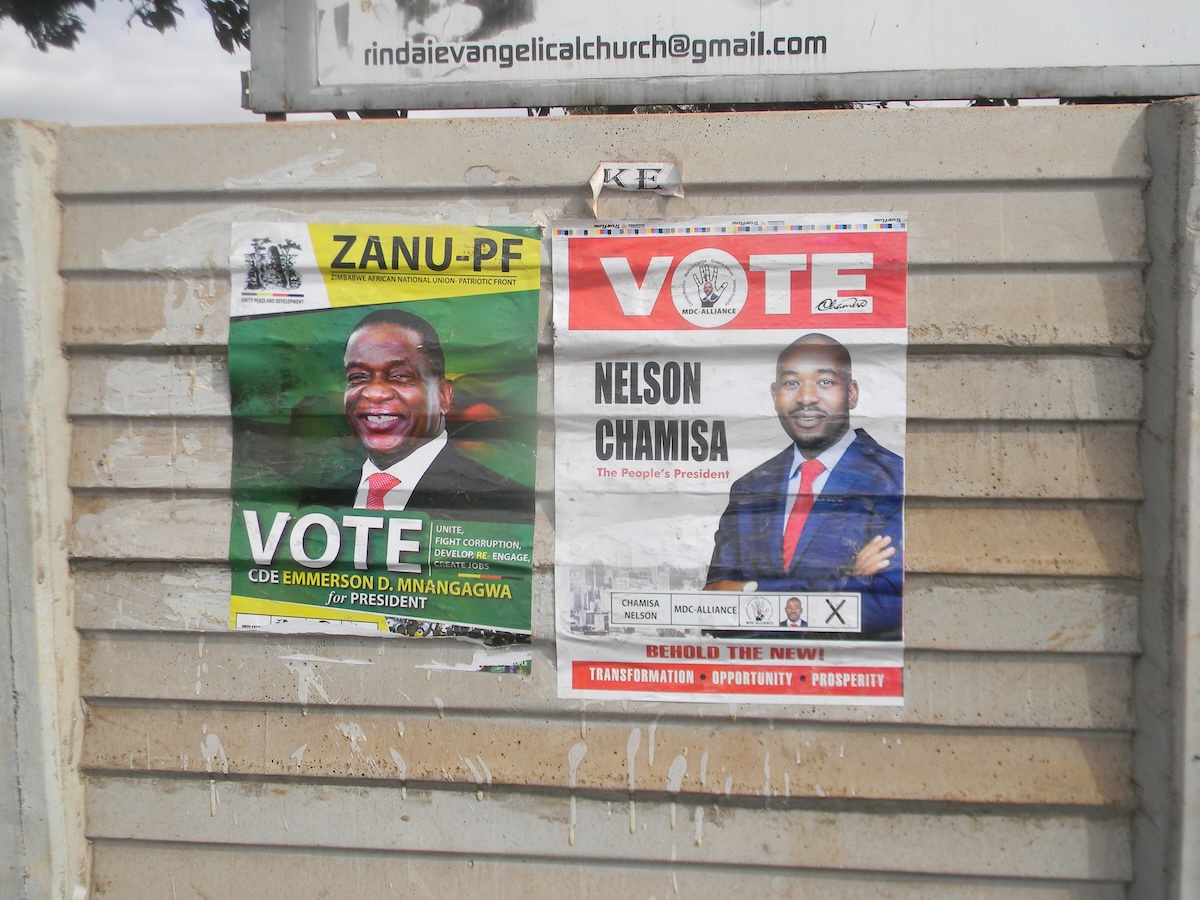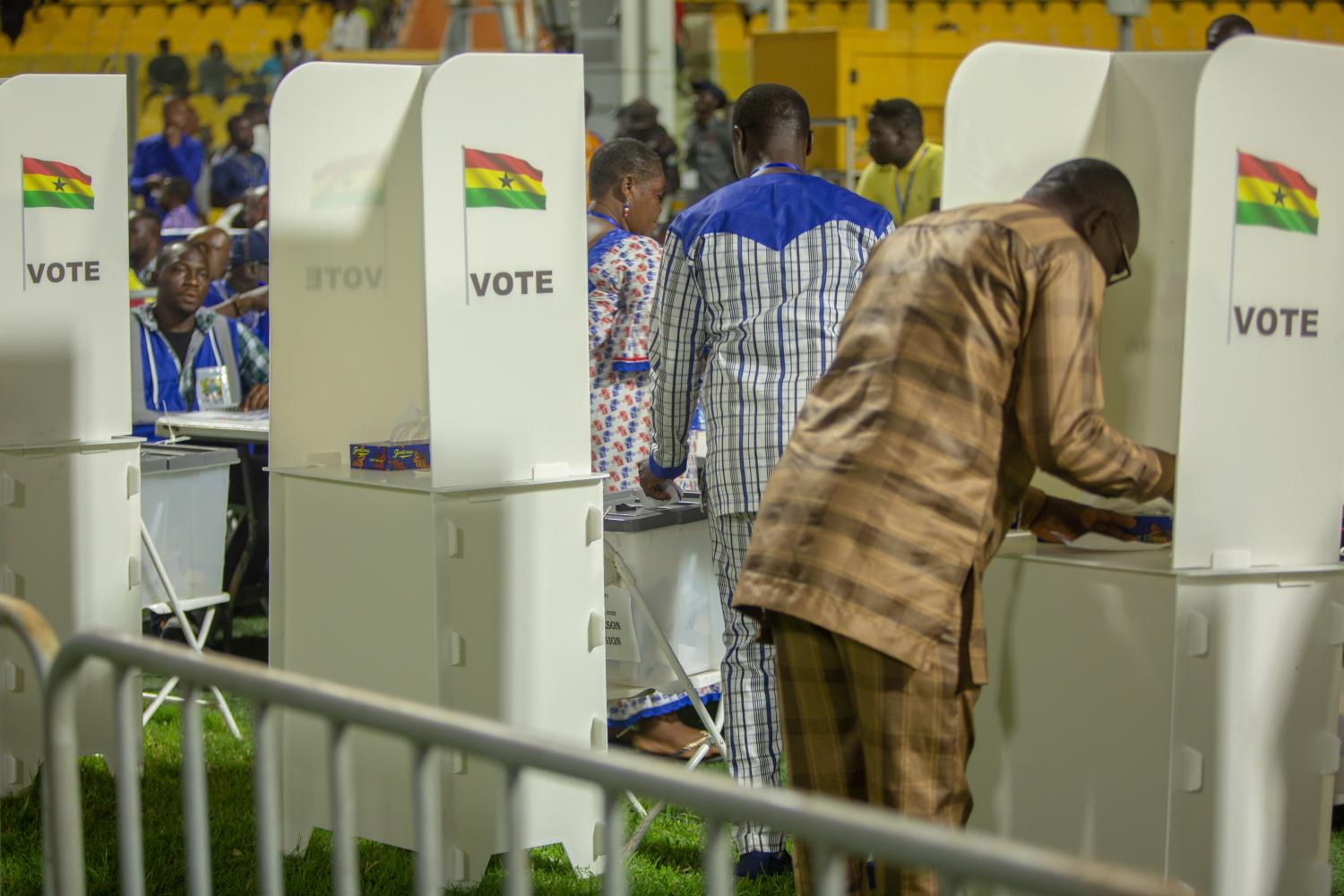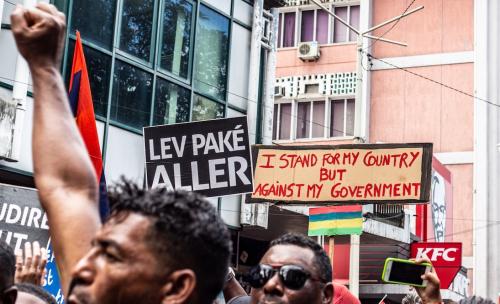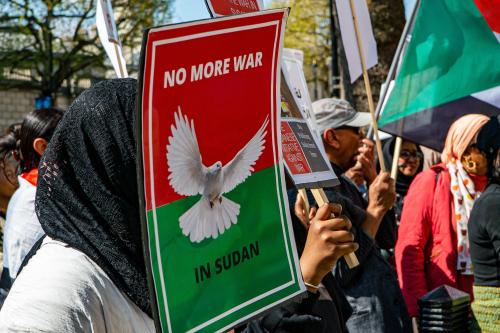This case study is part of a project on the state of democracy in Africa. See our other works from this project.
Since gaining independence from colonial rule in 1980, democracy has struggled to take root in Zimbabwe. The country provides an excellent example of what Charles Tilly (2017) described as the process of democratization and de-democratization, wherein countries chase democracy without success, sometimes getting better and at other times experiencing erosion, backsliding, and regression. Zimbabwe’s current political situation is best described as an illiberal, militarized, electoral authoritarian regime (Masunungure, 2011; Levitsky and Way, 2002; LeBas and Munemo, 2019). On paper, Zimbabwean institutions allow the basic tenets of democracy: regular elections, participation by the opposition, civil society, and a broad bill of rights. Yet elections are a façade covering a deeply entrenched authoritarian system. The opposition has been decimated by violence, intimidation, infiltration, unlawful arrests, co-option, and delegitimization as “stooges” of Western states. Civil society operates with a lot of courage under close state surveillance and instruments such as the Private Voluntary Organizations (PVO) Act give the government wide-ranging powers to control and surveil the activities of voluntary organizations (Ntini, 2022). Additionally, the country’s security sector has a strong presence in politics and culture (Ruhanya and Gumbo, 2023a; Dorman, 2017; Makumbe, 1998).
Methodologically, this case study mainly relies on original qualitative interviews with key diplomats and politicians involved in external responses to Zimbabwe’s 2017 coup, in addition to using primary and secondary materials. The case study assesses the current state of democracy in Zimbabwe and the multiple factors shaping its evolution in the last decade. The data for this paper is drawn from interviews conducted by the authors for this project and past projects, where relevant. In 2013, the various measures of accountability—vertical, horizontal, and diagonal—were stronger than they had been since the early 2000s. Following the violent June 2008 runoff presidential election, which resulted in the deaths of hundreds of opposition supporters, a new Government of National Unity (GNU) was formed as a proposed end to the conflict, with the ruling Zimbabwe African National Union Patriotic Front’s (ZANU PF) Robert Mugabe as President and main opposition leader Morgan Tsvangirai as Prime Minister (Alexander and Tendi, 2008; Badza, 2008; McGreal, 2008). Between 2009 and 2016, the country seemed to be moving toward political stability as an opening for democracy emerged due to the 2013 adoption of a new constitution, a lack of coups, increased economic stability, and a reduction in political persecution (Mahonye and Mandishara, 2015; Richardson, 2013; Musarurwa, 2016; Dendere, 2019).
However, in 2017, President Mugabe was ousted in a military coup after 37 years in power (Moore, 2018). This, we argue, reversed the strengthening of vertical, horizontal, and diagonal accountability seen in preceding years and set Zimbabwe on a path back toward authoritarianism. Indeed, one of the core reasons for the lack of democratization in Zimbabwe is the political role of the military (and the security sector more broadly), which is aligned with ZANU PF and work to sustain an authoritarian system. Yet the 2017 military coup found initial “acceptance” or “tolerance” by international actors, with ZANU PF being asked to deliver a reasonably credible post-coup election in 2018 as a key step towards legitimate government and the resumption of international economic aid for Zimbabwe (Reuters 2017; Beavers, 2017). However, by emphasizing credible elections, international actors downplayed the urgent need for reform of the politically entrenched military that had staged the coup, and which was the foundation for the country’s authoritarian system. Consequently, since the coup and subsequent 2018 election there has been more authoritarian continuity than democratic change in Zimbabwe. We argue that the current government’s hold onto power was further strengthened by a longstanding pattern of mass emigration caused by weakening accountability and political persecution and that the government worsened a deep socioeconomic crisis since the coup. Additionally, a weak opposition and repression towards civil society have significantly contributed to ZANU PF’s ability to retain power and extend its authoritarian political system since 2017.
Studies of Zimbabwean politics seldom engage, in a serious way, the significant role of democracy-promoting Western actors in sustaining ZANU PF’s authoritarian system. Therefore, in this paper, we analyze how Western states reacted to the 2017 military coup in Zimbabwe that ousted long-time president Mugabe and replaced him with ZANU PF stalwart Emmerson Mnangagwa. We argue that Western states chose not to call the coup a coup for compound reasons. The responses of Western states to the 2017 coup enabled the coup-makers and ZANU PF to evade international condemnation following the coup and stage a problematic election that granted the coup-born government a veneer of legitimacy.
The paper is divided into four sections. The first section is a historical overview of Zimbabwean politics since independence, which is useful background for the reader and helps us appreciate the historically rooted nature of ZANU PF’s authoritarianism. The second section examines how domestic factors such as a decline in civil society and emigration contribute to ZANU PF’s longevity and authoritarianism. The third section concerns the responses of Western actors to Zimbabwe’s 2017 coup. The final section reflects on the impact of the 2017 coup and its subsequent regime on the current state of Zimbabwean politics. We now turn to a historical overview of post-independence Zimbabwe’s politics.
-
Acknowledgements and disclosures
The Brookings Institution is a nonprofit organization devoted to independent research and policy solutions. Its mission is to conduct high-quality, independent research and based on that research, to provide innovative, practical recommendations for policymakers and the public. The conclusions and recommendations of any Brookings publication are solely those of its author(s), and do not reflect the views or policies of the Institution, its management, its other scholars, or the funders acknowledged below.
This publication is supported by a grant from the Open Society Foundations.
Brookings recognizes that the value it provides is in its absolute commitment to quality, independence, and impact. Activities supported by its donors reflect this commitment.
The Brookings Institution is committed to quality, independence, and impact.
We are supported by a diverse array of funders. In line with our values and policies, each Brookings publication represents the sole views of its author(s).




